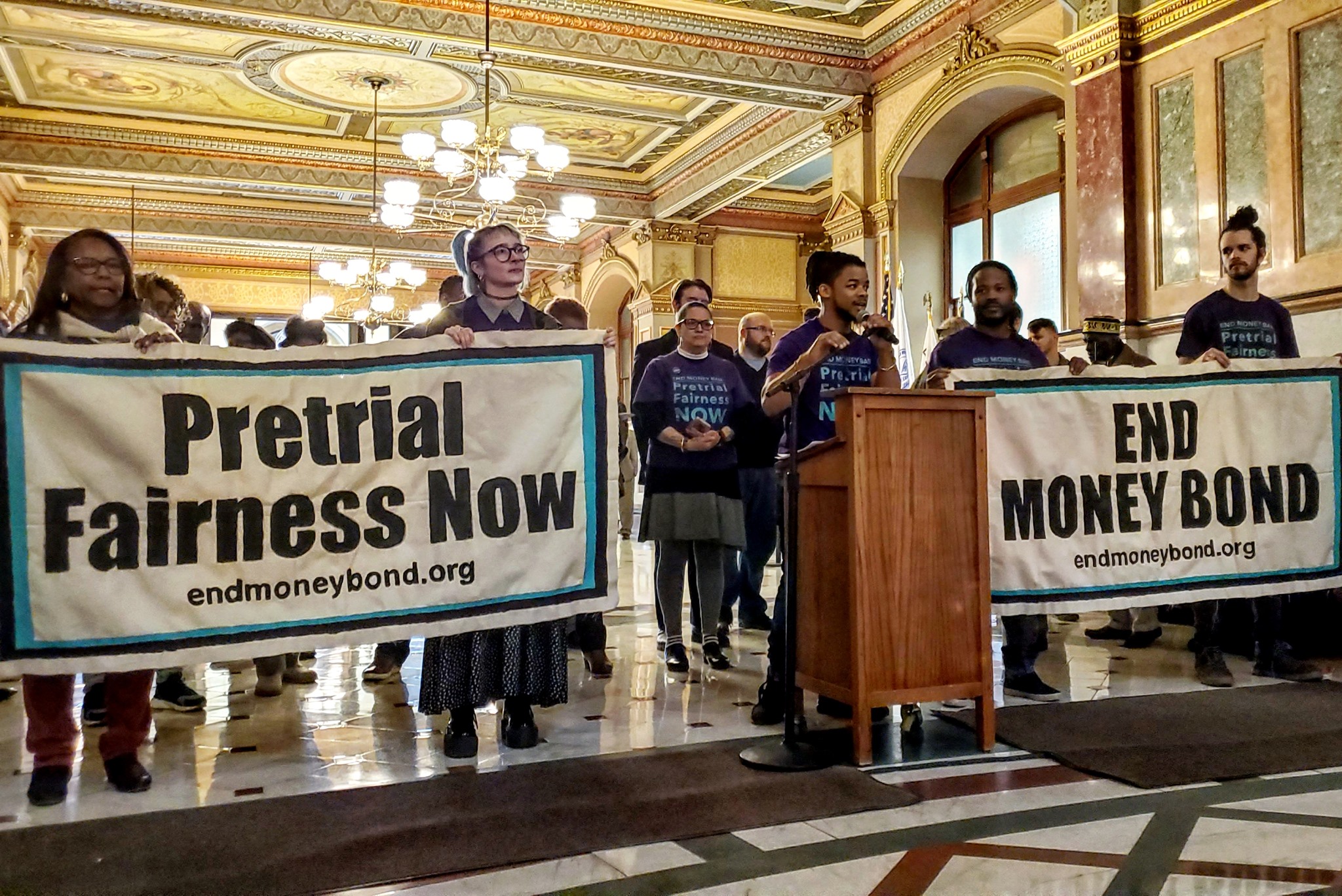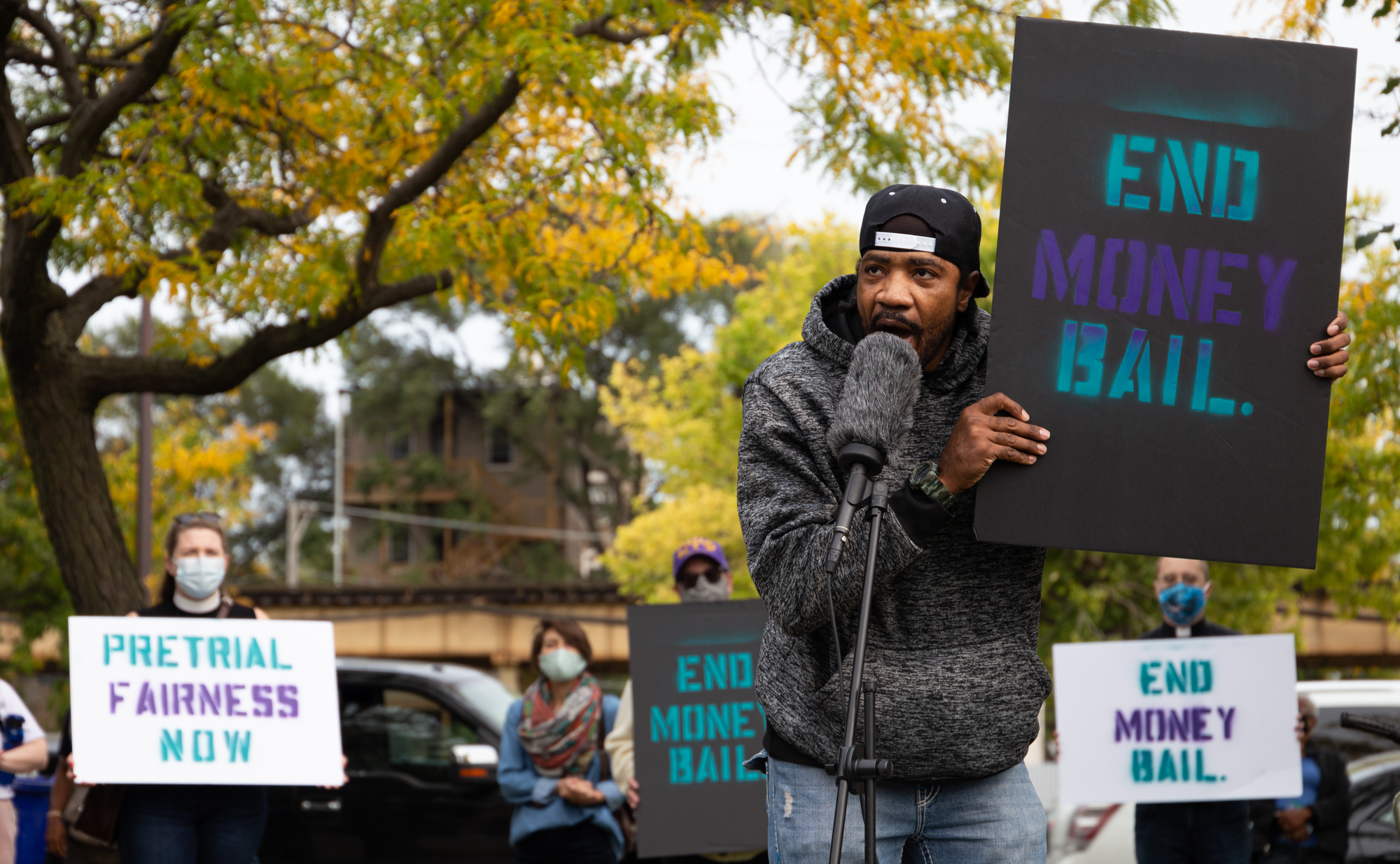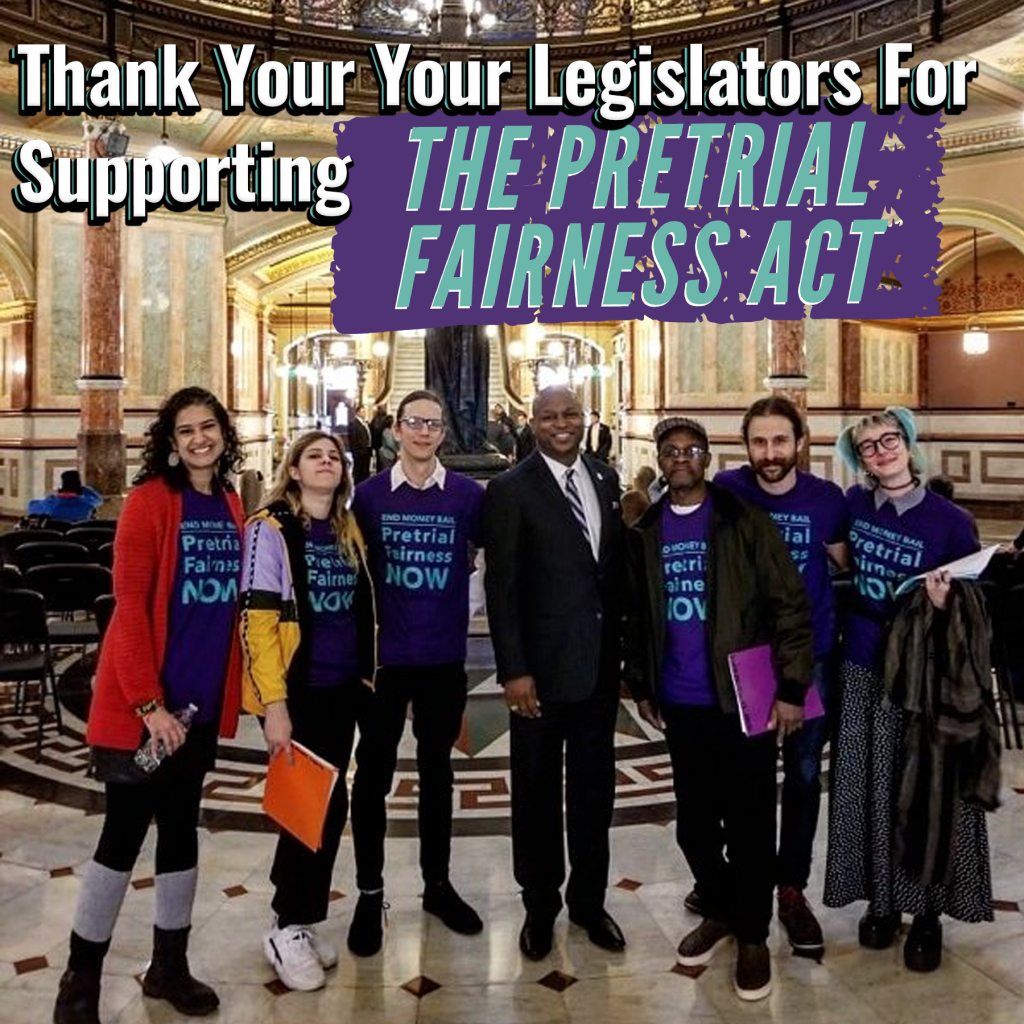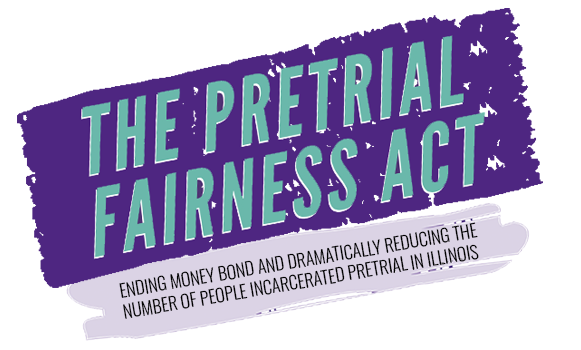
On January 13, 2021, the Illinois legislature passed the Pretrial Fairness Act as part of the Illinois Legislative Black Caucus’ criminal justice reform bill, HB 3653 SFA2 (bill text). The Pretrial Fairness Act was written by advocates and organizers in the Coalition to End Money Bond and the Illinois Network for Pretrial Justice and championed in Springfield by Senators Elgie Sims and Robert Peters and Representative Justin Slaughter. The passage of the bill was only made possible because of the thousands of people and more than 100 organizations in our robust and diverse movement for pretrial freedom.
Key Accomplishments of the Pretrial Fairness Act
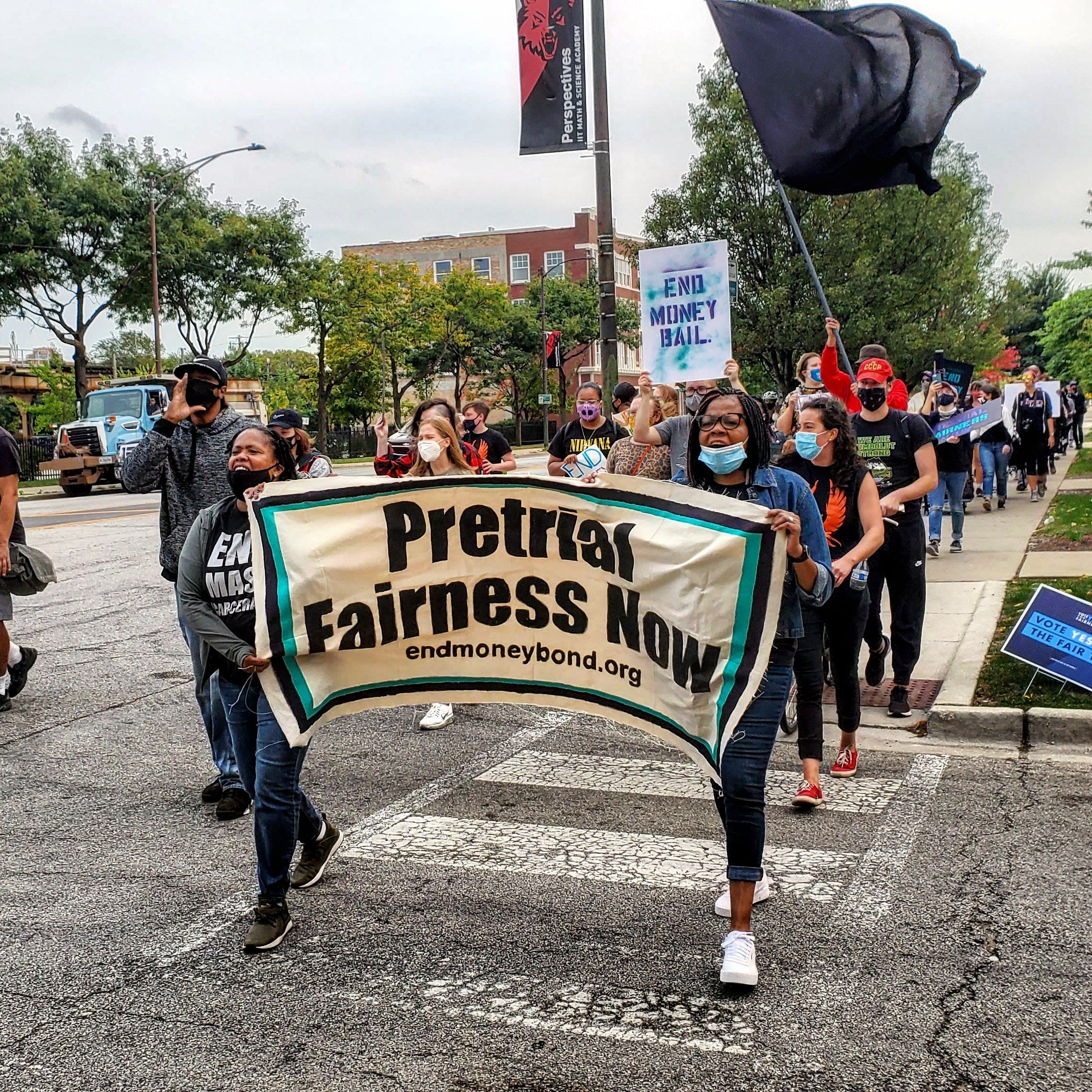
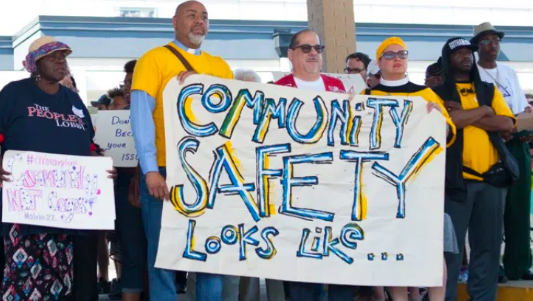
• Abolishes Money Bond: The Pretrial Fairness Act completely eliminates the role of money bond in Illinois, ensuring access to wealth will play no role in release or detention decisions.
• Limits Eligibility for Pretrial Incarceration: The Pretrial Fairness Act allows only people accused of qualifying charges to be detained pretrial, and they can only be jailed if a judge finds they pose a high risk of willful flight or a specific threat to someone else.
• Regulates Risk Assessment Tools: The Pretrial Fairness Act ensures that risk assessment tools cannot be the sole basis for pretrial incarceration. It requires information about the scoring systems used to be given to accused people and their defense attorneys and allows defense attorneys to challenge the validity of a risk assessment tool used in court.
• Authorizes Release by Law Enforcement: The Pretrial Fairness Act avoids unnecessary pretrial jailing by requiring police to give some people tickets without arresting them and authorizing police to release others who have been arrested with court dates in cases where there is no risk to public safety.
• Reduces Penalties for Violations of Pretrial Release Conditions: Technical violations of pretrial release (such as missing a court date) and misdemeanor arrests will no longer result in people indefinitely losing their pretrial freedom. Violations of pretrial release conditions will also be downgraded from possible felonies to Class A misdemeanors.
• Requires Reconsideration of Detention and Release Conditions: Judges will be required to reconsider pretrial conditions or incarceration at each court date and determine whether a less restrictive set of conditions would be sufficient to ensure safety and court appearance.
• Ensures Credit and Movement for People on Electronic Monitoring: The Pretrial Fairness Act requires judges to reconsider electronic monitoring conditions every 60 days to determine if someone on electronic monitoring can be given less restrictive conditions. It also guarantees movement for people on electronic monitoring to complete essential functions and ensures time spent on electronic monitoring will count toward a future sentence of incarceration.
• Reforms the Warrant Process: When someone misses court, judges will now be able to issue a notice to the person to appear in court within 48 hours voluntarily, instead of immediately issuing a warrant for arrest that forcefully brings people to court who might otherwise appear on their own.
•Ensures Transparency and Oversight through Data Collection & Publication: Data on outcomes at bond hearings and the bond status of people in jail in every county will be collected and made publicly available.
